Warning-based early action is an approach that incorporates new elements in disaster risk management to reduce the impacts of disasters on vulnerable groups and enhance disaster preparedness and response through access to financial resources for early action.
In Quang Tri province, Thanh commune, Huong Hoa district is one of the areas most severely affected by natural disasters. Every time there is heavy rain, Thanh commune is isolated due to flooding, causing disruptions in travel, business and schooling for local people. At the same time, damaged infrastructure makes it difficult to access food sources, making the already difficult lives of local people even more difficult.
With the desire to help people, especially those in vulnerable groups, improve their flood prevention capacity, proactively prepare for upcoming natural disasters, and reduce the burden of recovery after future floods. In November 2022, 130 households in severely flooded and vulnerable areas in Thanh commune, Huong Hoa district, Quang Tri province were equipped with knowledge, cash and goods to prepare for and respond to floods. Each household received 1 water and food container; cash worth 3.4 million VND, 4.3 million VND or 5.3 million VND/household depending on the number of people in the household to purchase food, groceries and house reinforcement tools.
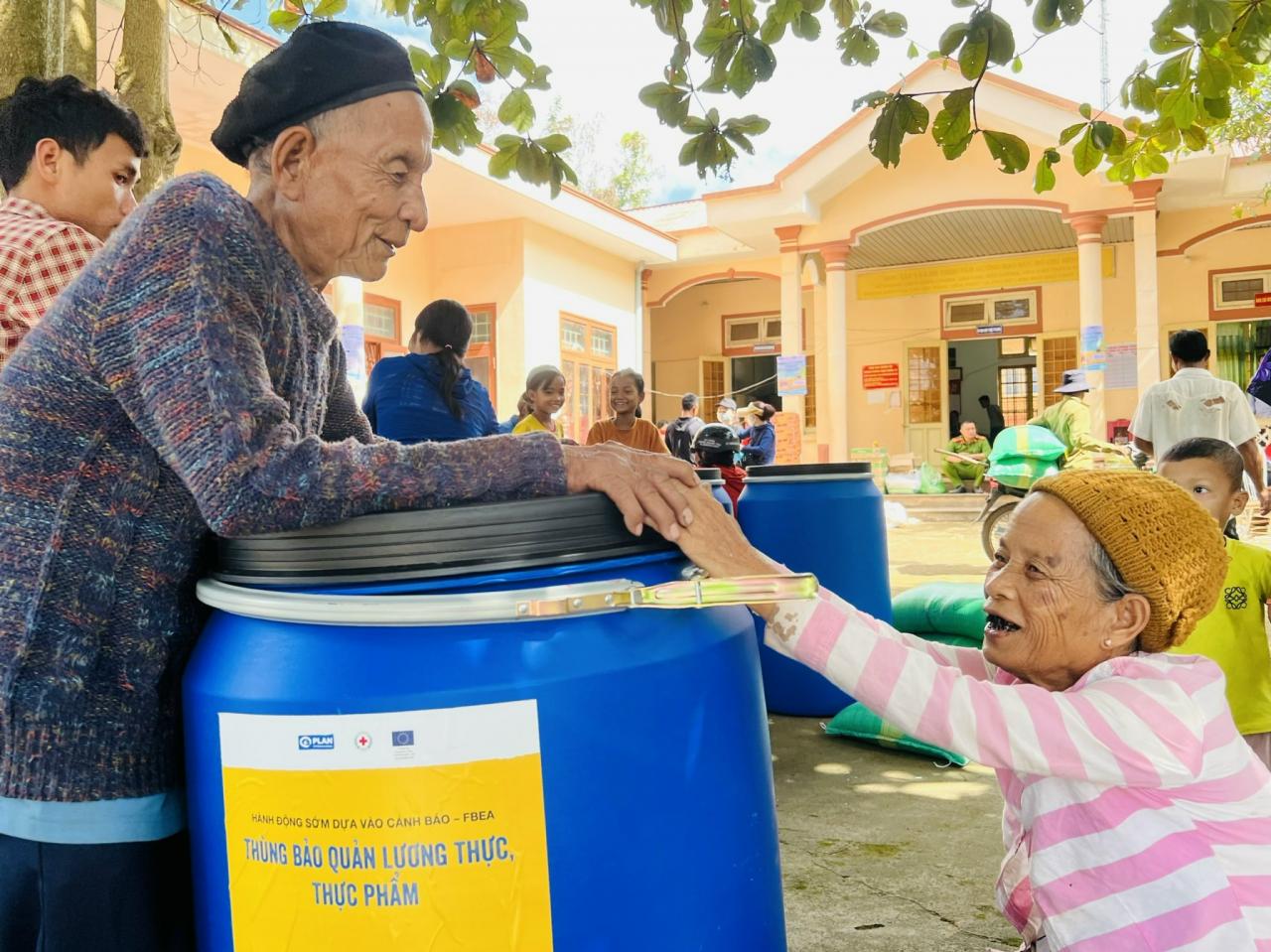
This activity is part of the project “Early Action Based on Warning - FbEA SEA”, aiming to support people in vulnerable groups in Quang Tri province, Binh Thuan province and Ho Chi Minh City, to improve their management skills and respond to risks caused by extreme weather events according to the operational framework of the early action mechanism based on warning.
Research by the Food and Agriculture Organization of the United Nations (FAO) has shown that every $1 spent on early action based on warnings to prevent natural disasters such as floods saves up to $7 in damage costs. Accordingly, efforts to provide relief and recovery after disasters are often costly and require a lot of time. Instead of disbursing funds after a disaster occurs, early action mechanisms prioritize early disbursements to vulnerable households and communities based on warning thresholds set by scientists. The use of humanitarian assistance resources will then be much more effective and at the same time increase the resilience of communities to natural disasters.
Warning-based early action is an approach that incorporates new elements in disaster risk management to reduce the impacts of disasters on vulnerable groups and enhance disaster preparedness and response through access to financial resources for early action. Currently, 53 countries in the world have implemented warning-based early action programs.
Early warning systems include response plans agreed between the government, the community and the people, to mitigate expected impacts. A comprehensive early warning system must also include lessons learned from past events, to continuously improve responses to future weather, climate, hydrological and environmental hazards.
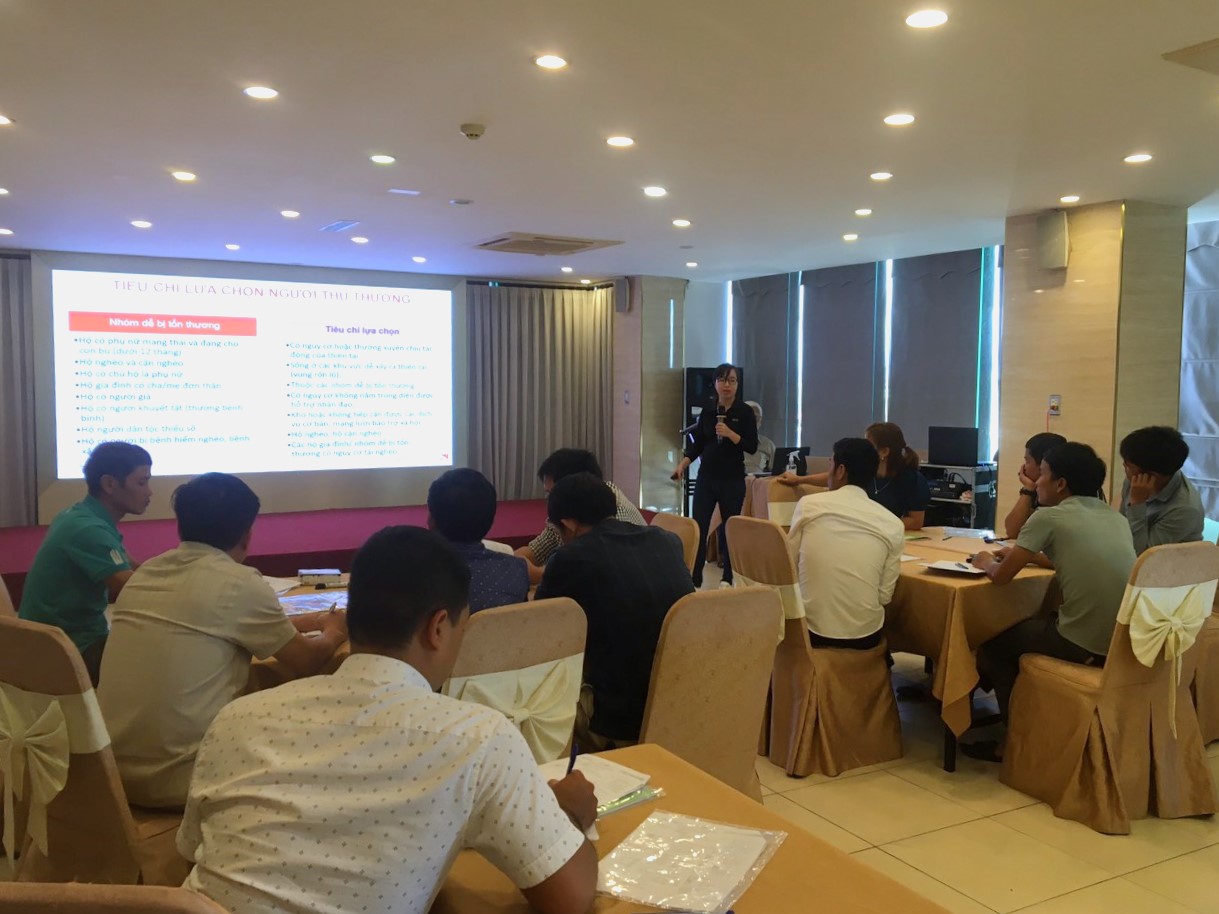
The “Early Action on Warning – Southeast Asia” project was implemented from July 2011 to March 2023 in four communes in two districts of Huong Hoa, Quang Tri province; Ham Thuan Bac, Binh Thuan province and three wards in Ho Chi Minh City. The project aims to support more than 6,500 people to improve their management skills and respond to risks caused by extreme weather events such as floods, droughts and heat waves under the framework of the early action mechanism based on warnings.
Over 21 months of field work, the project has provided 536 households with cash and equipment to implement disaster preparedness and risk reduction activities.
In addition, four disaster prevention and rescue command boards and shock teams in four project beneficiary communes have been supported with means to deploy actual response and rescue activities at the scene. A set of operational standards for activating disaster risk prevention actions based on project warnings has also been compiled, completed, put into practice in the area and is being discussed and agreed upon with the Food and Agriculture Organization of the United Nations (FAO).
Ngoc Chau


![[Photo] General Secretary To Lam visits exhibition of achievements in private economic development](https://vphoto.vietnam.vn/thumb/1200x675/vietnam/resource/IMAGE/2025/5/18/1809dc545f214a86911fe2d2d0fde2e8)
![[Photo] Ready for the top competitions of Vietnamese table tennis](https://vphoto.vietnam.vn/thumb/1200x675/vietnam/resource/IMAGE/2025/5/18/9c547c497c5a4ade8f98c8e7d44f5a41)




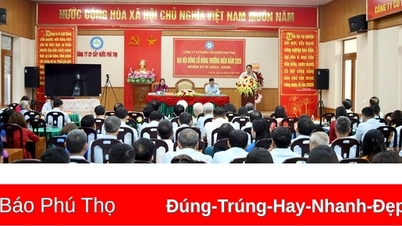

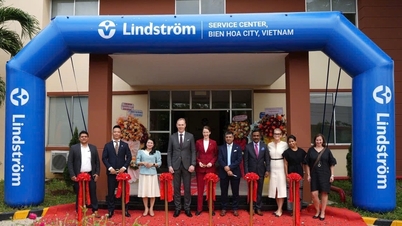



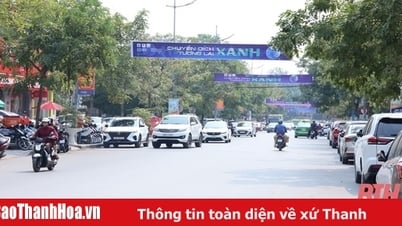




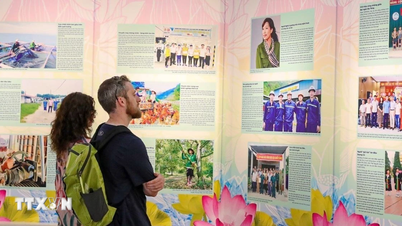







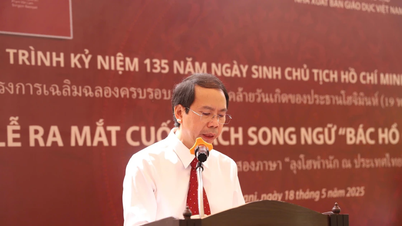





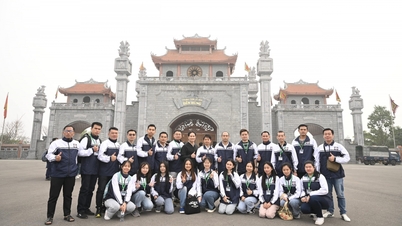


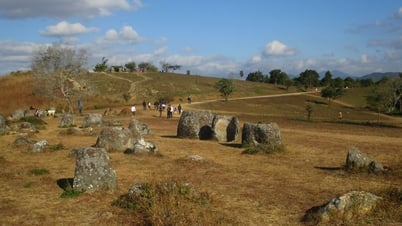
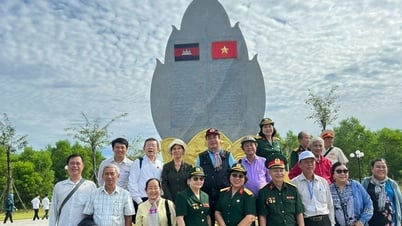
![[Photo] National conference to disseminate and implement Resolution No. 66-NQ/TW and Resolution No. 68-NQ/TW of the Politburo](https://vphoto.vietnam.vn/thumb/1200x675/vietnam/resource/IMAGE/2025/5/18/adf666b9303a4213998b395b05234b6a)
















































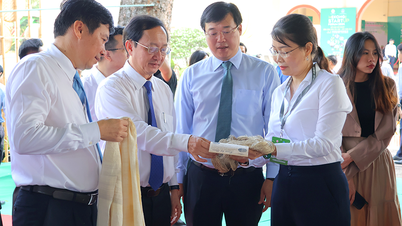













Comment (0)